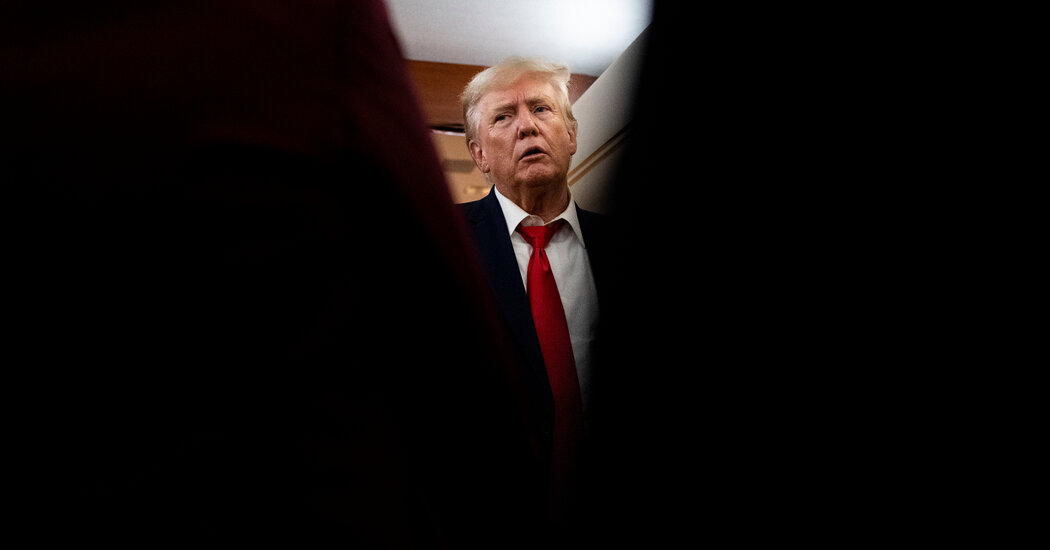
Trump Exists, With or Without Television Cameras
As a former executive of Fox News, I never expected to write this: CNN performed a valuable journalistic service this week by hosting a spirited town hall with Donald Trump.
Like it or not, Mr. Trump is one of the two people who are most likely to win the presidency next year. He should be questioned by journalists at every opportunity, whether those be news conferences, live interviews, taped interviews, debates and, yes, town halls. Far too often, presidential candidates stick to scripted events, safe audiences and saturation advertising; days, even weeks, go by with a candidate — or a sitting president — not facing a single tough question.
We’ve heard a lot of naysayers deriding the recent town hall or even the idea of mainstream media interviews with Mr. Trump as “platforming” a monster. Monster or not, Mr. Trump is the front-runner for the Republican presidential nomination (he is about 30 points ahead of his nearest rival) and a central figure in some of the most high-profile political and legal debates in this country. Are we better off as a society if, after shunting Mr. Trump into his own MAGA bubble, we wake up in November 2024 and find that he has been elected president?
With the first Republican primary debate scheduled for August, we need to confront this and some other uncomfortable questions now. Is American democracy so fragile that we cannot metabolize the outlandish views of a presidential candidate? If a candidate is the subject of serious investigations, shouldn’t the news media ask him about that? Are our ideas of journalism so degraded that providing airtime to a candidate is tantamount to an endorsement?
When a reporter holds a politician’s feet to the fire by asking him tough questions, that does not mean she or the network endorses the politician’s answers. We need to reflect on why televising a town hall with a leading candidate, no matter how abhorrent he is to a portion of the country, could inspire not just outrage at his performance but also fundamental questions about a television network’s decision to host the candidate. The Constitution does not bar Mr. Trump from running and our democracy does not bar him from running — yet CNN should not ask him tough questions?
Since the 1960 debate between Richard Nixon and John F. Kennedy, television networks have played a role in our country’s politics. Television is second only to the internet in its ability to concentrate the country’s attention. The United States is a mature democracy. We must trust voters to assess candidates and the media to provide more, not less, information.
Some Democrats think that Mr. Trump’s performance at the town hall will hurt him among swing voters, making it less likely that he will win in 2024. That may be so: Many swing voters have spent less time thinking about Mr. Trump these last two years because they don’t obsess about politics like partisans do. So it was a journalistic service to interrogate Mr. Trump’s brand of politics in a forum that allowed voters to assess the former president.
I have spent a lot of time thinking about what motivates Americans to vote, and I wonder if there’s more driving the hyperventilating about the town hall than just providing a platform to a monster. Could Democrats be worried that Mr. Trump’s brio and showmanship might strike a chord with some voters? Could Mr. Trump’s performance remind some independents that while they may not be overtly pro-Trump, they are more than a little anti-anti-Trump?
Having spent part of my career helping prepare news anchors to question presidential candidates in debates and town halls, I tip my hat to CNN’s Kaitlan Collins. Under enormous pressure, Ms. Collins kept her composure and, crucially, never made it about herself. Furthermore, she elicited responses from the candidate that made news on topics from abortion to Ukraine.
Mindful of Ms. Collins’s strong performance, critics have instead focused their ire on the town hall format, lamenting that it allowed Republican audience members to cheer on Mr. Trump’s insults and falsehoods. But not all the people in the room were pro-Trump — just the noisy ones. Besides, news organizations have been using town hall formats for years, rightfully reasoning that it’s important for candidates to hear from likely primary voters.
Should we ban all town halls because the audience might side with the candidate? Should we ban live interviews because it’s too difficult to fact-check a candidate in real time? Or should we just ban Donald Trump altogether and get it over with, as many of his critics would prefer?
We should do none of these things. That would be a journalistic disservice to a pluralistic society and electorate that is entrusted with listening, assessing and judging our leaders. Town halls like this one help Americans to think for themselves. It wasn’t so long ago that journalists were able to report hard truths and conduct tough interviews without worrying about upsetting some segment of their viewers. CNN deserves a lot of credit for attempting to return to a baseline that I always considered Journalism 101, but which now feels downright old-fashioned.
Bill Sammon is the former managing editor of the Washington bureau of Fox News.
The Times is committed to publishing a diversity of letters to the editor. We’d like to hear what you think about this or any of our articles. Here are some tips. And here’s our email: [email protected].
Follow The New York Times Opinion section on Facebook, Twitter (@NYTopinion) and Instagram.
